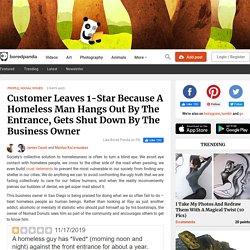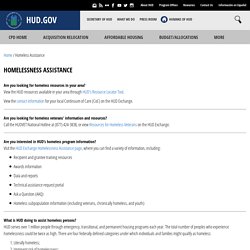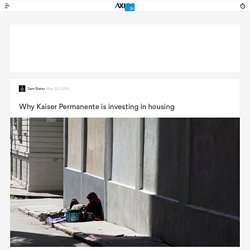

Editorial: Looks like it’s up to the cities to work on homeless solution. As increasing numbers of American cities and towns grapple with the problems of widespread homelessness, a thorny question keeps arising.

Where’s the line between the right to live without a home and the right to live in relative peace and safety? Does the right of one person to sleep on the streets trump the rights of another to not have their front yard or storefront turned into a makeshift campground? A version of that question made itself to the doorstep of the U.S. Supreme Court earlier this month in the form of a disputed public sleeping ban in Boise, Idaho, according to a Los Angeles Times story that appeared in the Journal Dec. 17. To the chagrin of many, however, it made it no further, as justices “without comment or a dissent” said they would not hear the case. Customer Leaves 1-Star Because A Homeless Man Hangs Out By The Entrance, Gets Shut Down By The Business Owner. Society’s collective solution to homelessness is often to turn a blind eye.

We avoid eye contact with homeless people, we cross to the other side of the road when passing, we even build cruel deterrents to prevent the most vulnerable in our society from finding any shelter in our cities. We do anything we can to avoid confronting the ugly truth that we are failing collectively to care for our fellow humans, and when the reality inconveniently pierces our bubbles of denial, we get super mad about it.
This business owner in San Diego is being praised for doing what we so often fail to do – treat homeless people as human beings. Rather than looking at Ray as just another addict, alcoholic or mentally ill statistic who should pull himself up by his bootstraps, the owner of Nomad Donuts sees him as part of the community and encourages others to get to know him. Image credits: Nomad Donuts Image credits: Brad Keiller. Property Owners Can Do Basically Whatever They Want to Homeless People Now. Denver Health among hospitals buying housing to host patients. DENVER – One patient at Denver Health, the city’s largest safety net hospital, occupied a bed for more than four years – a hospital record of 1,558 days.

Another admitted for a hard-to-treat bacterial infection needed eight weeks of at-home IV antibiotics, but had no home. A third, with dementia, came to the hospital after being released from the Denver County Jail. His family refused to take him back. In the first half of this year alone, the hospital treated more than 100 long-term patients. All had medical issues that led to their initial hospitalization. 'Stranded in our hospital' Legally and morally, hospitals cannot discharge patients if they have no safe place to go.
“Those people are, for lack of a better term, stranded in our hospital,” said Dr. To address the problem, hospitals from Baltimore to St. Should you keep eating red meat? Hospital executives find the calculus works even if they have to build affordable housing units themselves. Spending to save money Growing interest. / U.S. Department of Housing and Urban Development (HUD) Homelessness Assistance Are you looking for homeless resources in your area?

View the HUD resources available in your area through HUD's Resource Locator Tool. View the contact information for your local Continuum of Care (CoC) on the HUD Exchange. Are you looking for homeless veterans' information and resources? Call the HUDVET National Hotline at (877) 424-3838, or view Resources for Homeless Veterans on the HUD Exchange. Are you interested in HUD’s homeless program information? Visit the HUD Exchange Homelessness Assistance page, where you can find a variety of information, including: Recipient and grantee training resources Awards information Data and reports Technical assistance request portal Ask a Question (AAQ) Homeless subpopulation information (including veterans, chronically homeless, and youth) What is HUD doing to assist homeless persons? HUD serves over 1 million people through emergency, transitional, and permanent housing programs each year.
Kaiser Permanente is investing in housing to improve people's health - Axios. India and Pakistan are sliding toward potential nuclear war, according to the president of Pakistani-controlled Kashmir.

The warning comes as Pakistan attempts to rally global outrage against its neighbor and rival. Catch up quick: On Aug. 5, India revoked the constitutional autonomy of Jammu and Kashmir — the state it controls within the disputed Himalayan territory — while instituting a communications blackout and a curfew enforced by hundreds of thousands of troops. Both India and Pakistan claim Kashmir, partially control it and have gone to war to defend their claims. Hospitals are getting into the housing business - Axios. India and Pakistan are sliding toward potential nuclear war, according to the president of Pakistani-controlled Kashmir.

The warning comes as Pakistan attempts to rally global outrage against its neighbor and rival. Catch up quick: On Aug. 5, India revoked the constitutional autonomy of Jammu and Kashmir — the state it controls within the disputed Himalayan territory — while instituting a communications blackout and a curfew enforced by hundreds of thousands of troops. Both India and Pakistan claim Kashmir, partially control it and have gone to war to defend their claims. The sudden move to fundamentally change the status of Indian-controlled Kashmir enraged Pakistan.Where things stand: Michael Kugelman of the Wilson Center tells Axios that while conditions vary across the state, “you still have a lockdown in effect, you still have a communications blackout in effect and you still have a number of people detained, including local political leaders.”